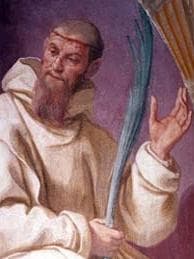
Blessed Walter Pierson
Blessed
Feast Day: June 10
Death: June 1, 10
Biography
Blessed Walter Pierson, also known as Walter Pearson, was a devout Carthusian lay brother who resided in the London Charterhouse during the tumultuous period of the English Reformation. While information about his early life is limited, it is known that he dedicated himself to the monastic order and committed his life to prayer, contemplation, and a rigorous ascetic lifestyle.
During the reign of King Henry VIII, who sought to break away from the authority of the Catholic Church, the London Charterhouse and its inhabitants faced immense persecution for their steadfast opposition. Blessed Walter, along with his fellow Carthusian brothers, vehemently resisted the Crown's encroachment on the Church. They refused to acknowledge Henry VIII as the Supreme Head of the Church of England and rejected his annulment of his marriage to Queen Catherine of Aragon.
In 1534, the Act of Supremacy was passed, which declared the King as the Supreme Head of the Church and required all subjects to take an oath accepting his authority. For their unwavering fidelity to their Catholic faith, Blessed Walter Pierson and his brethren braved imprisonment, torture, and execution.
On the faithful day of his arrest, Blessed Walter was detained alongside his Carthusian companions in Newgate Prison, a notoriously harsh and oppressive place. Chained in a standing position, he and his fellow Carthusians were subjected to unimaginable suffering. Denied proper sustenance, they were essentially left to starve to death as a means of breaking their resolve.
Blessed Walter Pierson endured this cruel fate until his martyrdom on June 10, 1537, bravely offering his life as a testament to his unwavering loyalty to the Catholic Church and his refusal to compromise his religious convictions.
Recognizing his selfless sacrifice and commitment to his faith, Pope Leo XIII beatified Walter Pierson on December 29, 1886. Though not much is known about his specific devotions or depictions, it is fitting to honor him on June 10 and also as one of the Carthusian Martyrs on May 4, alongside his fellow brothers who suffered and died for their faith during that period.